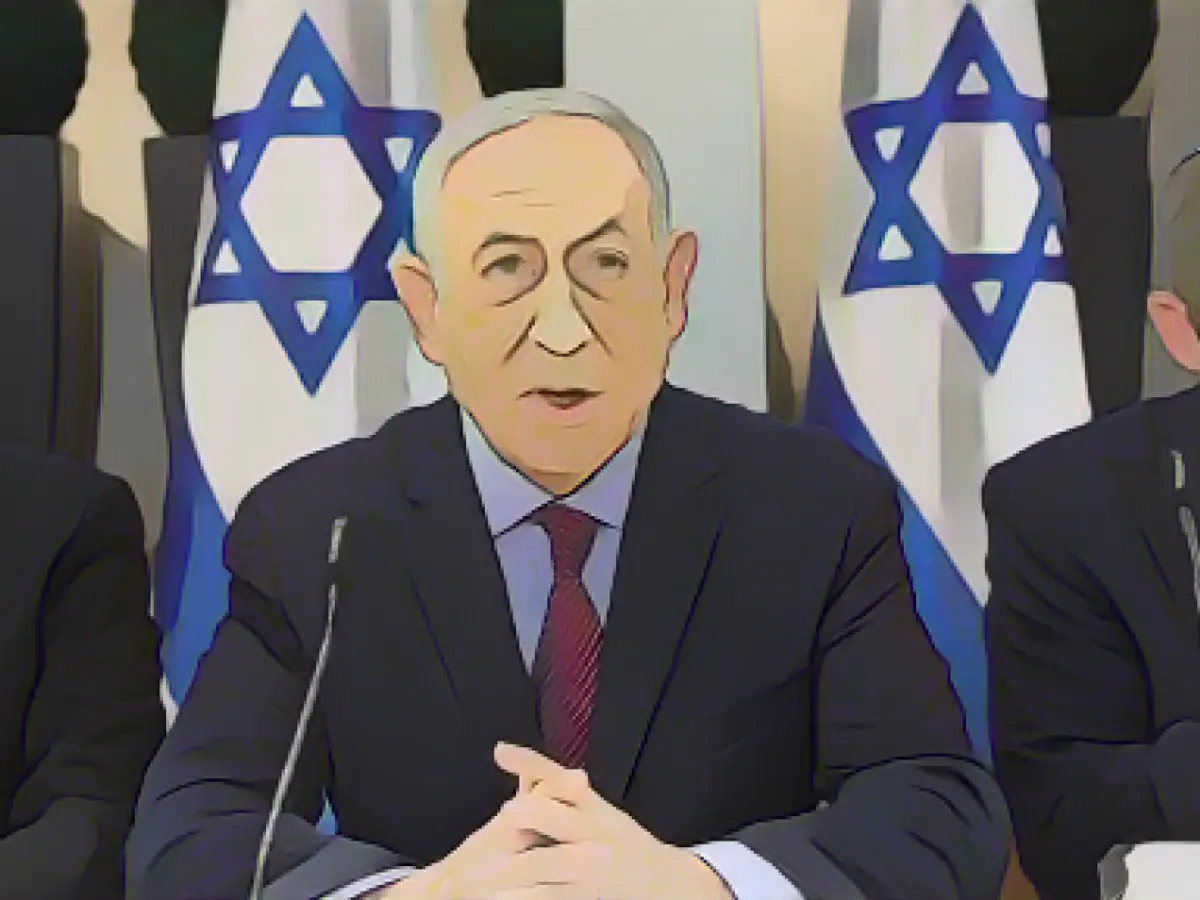War in the Middle East - Israel is not only fighting on several fronts - a national crisis is also looming in the country itself
While Israel's army continues to engage in fierce fighting with the Islamist Hamas in the Gaza Strip, a national crisis is looming at home. With its decision on Monday to overturn a core element of the controversial judicial reform in the country, Israel's Supreme Court has dealt another domestic political blow to the already ailing Prime Minister Benjamin Netanyahu. Whether this will have an impact on the conduct of the war is uncertain. In any case, the army is preparing for a long battle against Hamas, even if it initially withdraws some reservists from the front.
Netanyahu's party criticizes court decision
"The court decision contradicts the will of the people for unity, especially in times of war," criticized Netanyahu's right-wing conservative Likud party. The court had previously annulled an amendment to the government's Basic Law, which had deprived it of the opportunity to take action against "inappropriate" government decisions. Critics saw this as a threat to Israel's democracy. Mass protests had been taking place for months. Israeli army spokesman Daniel Hagari said on Monday that Hamas may also have carried out its attack on October 7 because it believed Israeli society was in chaos.
Israeli army responds to rocket fire
Meanwhile, the army said it had fired back in response to renewed rocket fire from Syria and Lebanon. According to a statement on Monday evening, five rockets fired from Syria flew into Israel and fell in open areas. Fighter jets then attacked the launch sites. On Israel's northern border, a fighter jet also hit "terrorist infrastructure" belonging to the Hezbollah militia in Lebanon. From there, rockets were fired in the direction of a northern Israeli settlement on Monday, the report continued.
Since the start of the Gaza war following the massacre by terrorists from the Islamist Hamas and other extremist groups in Israel on October 7, there have been repeated confrontations between Israel's army and Hezbollah in the border region. The security situation in the entire region has been very tense since the start of the Gaza war. The danger of the conflict spreading is also growing. The USA has urged Israel to switch from the intensive phase of heavy bombardment in Gaza to more targeted strikes against Hamas.
Has a new phase in the Gaza war begun?
On Tuesday night, the "New York Times" newspaper quoted military analysts and US officials as saying that the announcement by Israel's army of at least a temporary withdrawal of some reservists from the front probably signaled that such a phase change had now begun. In view of the catastrophic humanitarian situation in the sealed-off coastal area and the high number of civilian casualties, Israel has recently come under increasing international criticism.
Human Rights Commissioner: Signs of war crimes in Gaza war
The UN High Commissioner for Human Rights, Volker Türk, sees signs of war crimes and possibly crimes against humanity in the war. On the Palestinian side, he cites the terrorist attack on Israel on October 7 and 8, the indiscriminate firing of bullets at Israel and the military action from civilian facilities. Regarding Israel, Türk told the German Press Agency in Geneva: "If you look at how Israel reacted, I have serious concerns about compliance with both human rights and international humanitarian law."
In the heavy Israeli bombardments, 70 percent of those affected were women and minors. "It can be assumed that the majority of those who have been hit are civilians," the Austrian told DPA. "Furthermore, collectively punishing the Palestinians is a war crime. Of course, courts must ultimately judge who committed which crimes."
According to the Hamas-controlled health authority, the number of Palestinians killed amounts to 21,978. The figures cannot be independently verified. According to the latest figures from the UN Palestinian Relief and Works Agency, 40 percent of people in the area sealed off by Israel are at risk of starvation.
What will be important on Tuesday
Following the Supreme Court's ruling against part of the controversial judicial reform, the question is whether or not Netanyahu will accept the decision.
Read also:
- Floods: water levels remain critical in many places
- Snow chaos further restricts Bavaria
- Continuous operation in the flood areas
- Flood situation remains tense in many places
- Despite the ongoing fight against Hamas in the Gaza Strip, the Israeli Supreme Court's decision to overturn a part of the judicial reform has caused a domestic political crisis for Prime Minister Benjamin Netanyahu's government.
- Netanyahu's Likud party criticized the court decision, arguing that it contradicts the will of the people, particularly during times of war, and poses a threat to Israel's democracy.
- Meanwhile, the Israeli army responded to rocket fire from Syria and Lebanon, distance-firing back and attacking the launch sites with fighter jets.
- The escalating conflict in the Gaza Strip has put Israel in a state crisis, both domestically and in its relations with its neighbors, leading to international criticism over the high number of civilian casualties.
- The UN High Commissioner for Human Rights, Volker Türk, accused both sides of committing war crimes and potentially crimes against humanity during the Gaza war, with Israel responding disproportionately to Palestinian attacks.
- The Hamas-controlled health authority in the Gaza Strip reported at least 21,978 Palestinians killed during the conflict, while the UN stated that nearly 40% of the people in the area are at risk of starvation.
- As pressure mounts on Netanyahu to accept the court decision, the future of the Israeli judicial reform and the stability of the country remain in question, with the Middle East tensions reaching a critical stage.
Source: www.stern.de






